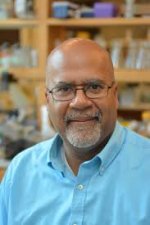Phage Therapy to Combat Infections by Antibiotic-Resistant Bacterial Pathogens

Paul E. Turner, Ph.D.
Rachel Carson Professor of Ecology and Evolutionary Biology
Yale University School of Medicine
Dr. Turner is the Rachel Carson Professor of Ecology and Evolutionary Biology at Yale University. His laboratory studies the evolutionary genetics and genomics of microbes, especially the ability of viruses to adapt — or not — to changes in their biotic and abiotic environments. These studies concern environmental challenges faced by viruses at all levels of biological organization, including effects of changes in molecules, proteins, cells, populations, communities, and ecosystems.
Summary
Increasing prevalence and severity of multi-drug-resistant bacterial infections require novel management strategies. One possible strategy is a renewed approach to ‘phage therapy,’ where these administered viruses not only kill the target bacteria, but also predictably select for phage resistance that reduces virulence and/or increases antibiotic sensitivity (evolutionary trade-offs). By utilizing virulence factors as receptor binding sites, the phages exert selection for bacteria to evolve phage resistance by modifying (or losing) the virulence factor, potentially reducing bacterial pathogenicity. We present examples of phages that utilize bacterial lipopolysaccharides, efflux-pump proteins, and pili as binding sites, to kill target bacteria while selecting for phage resistance that coincides with useful clinical traits such as antibiotic re-sensitization and reduced tissue inflammation. These in vitro observations are compared to phenotypic, genetic and metagenomics analyses of microbes isolated longitudinally from patient samples before, during and after emergency phage therapy treatments. Throughout, emphasis is placed on the ability to accurately predict how target bacterial pathogens will respond to phages administered either alone, sequentially, or in mixtures (cocktails).
This page was last updated on Thursday, May 19, 2022